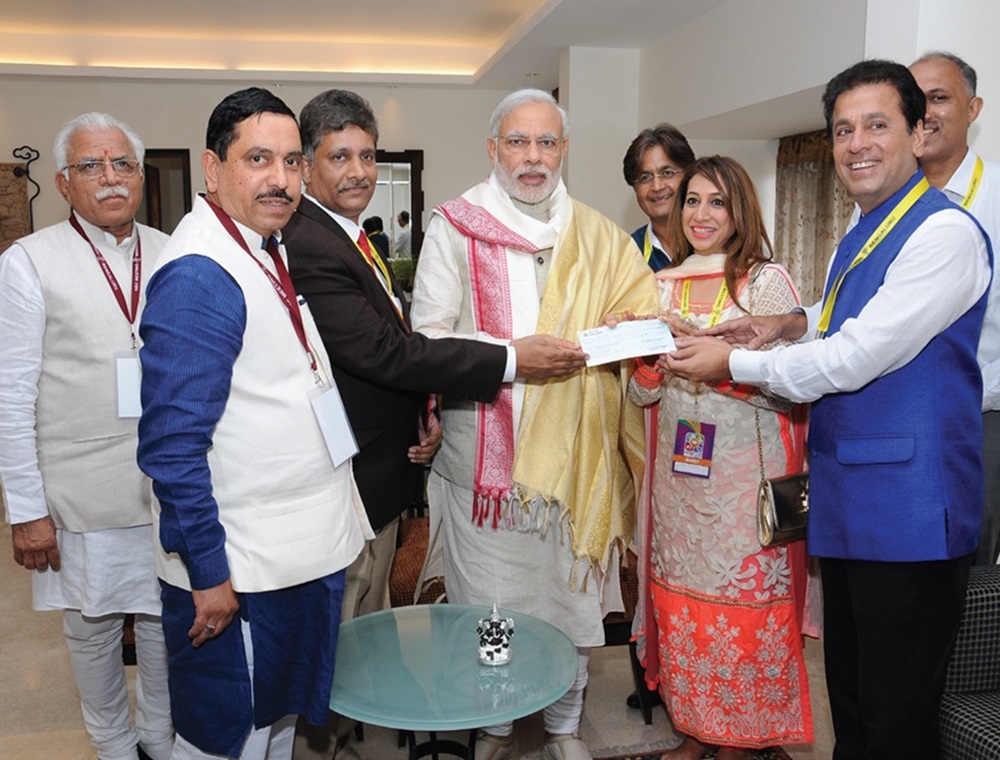
The Enlightened Leader: A Myth or a Necessity in Indian Politics?
- admin
- November 14, 2025
- Lifestyle, Opinion & Analysis
- 0 Comments
New Delhi, 2025 — In the labyrinth of Indian politics, the figure of the “enlightened leader” has always loomed large. But is this ideal leader—a person who embodies wisdom, justice, and ethical governance—simply a myth, or is it an essential need for the future of India? As the nation confronts growing challenges in governance, education, healthcare, and socio-economic development, the demand for leaders with vision and the moral clarity to address these issues is louder than ever.
While Indian politics has been shaped by powerful figures such as Mahatma Gandhi, Jawaharlal Nehru, and Indira Gandhi, the question remains: can India continue to thrive in the 21st century without the guiding force of enlightened leadership, or is this vision simply unattainable in today’s highly competitive and polarized political environment?
The Myth of the Enlightened Leader
- Historical Figures and Idealized Leadership
- Historically, leaders like Mahatma Gandhi and Dr. B.R. Ambedkar have been revered as enlightened figures who prioritized public service over personal gain. Gandhi’s leadership, for instance, was not about exercising power but about being a force for positive change, grounded in truth, non-violence, and selfless service. Similarly, Dr. Ambedkar’s leadership in drafting India’s Constitution was rooted in the ideals of justice and equality, with an unwavering commitment to uplift marginalized communities.
- The Challenge of Modern Politics
- However, in the context of contemporary Indian politics, the enlightened leader seems increasingly out of reach. Caste-based politics, religious polarization, and populist agendas often take precedence over policy and governance. The intense focus on electoral wins, party loyalty, and control of resources leaves little room for the type of leadership that Gandhi and Ambedkar envisioned—leadership that is grounded in a broader national vision rather than the personal or party interests.
- The Dangers of Power-Centric Politics
- The allure of power often leads political leaders to adopt expedient, rather than ethical, strategies. The centralization of power within a single party or leader can undermine democratic values and erode public trust in the political system. This power-centric politics can distort the purpose of leadership, turning it into a means for self-preservation and control rather than genuine service to the public good.
The Necessity of the Enlightened Leader
- Vision for Nation Building
- The rapidly changing socio-economic landscape of India requires visionary leaders who can look beyond the immediate electoral cycle and focus on the long-term welfare of the nation. Issues like climate change, unemployment, healthcare reform, and education demand leaders who are not only knowledgeable but also compassionate and ethically grounded.
- In the face of these challenges, enlightened leadership is essential. Leaders who understand the complexities of global economics, social justice, and inclusive growth are necessary to ensure that India continues to thrive as an inclusive, democratic nation. This is the leadership that can unite people across divides, offer solutions based on evidence and ethics, and guide the country towards prosperity.
- The Role of Ethics in Leadership
- An enlightened leader should prioritize ethical governance—making decisions that benefit society, protect human rights, and ensure fairness for all. Ethics and moral clarity are vital for political leadership. Without these principles, leaders risk perpetuating systems of inequality, corruption, and exclusion, which ultimately undermine the fabric of democracy.
- Programs like the Ayushman Bharat Scheme, which aims to provide affordable healthcare to over 500 million people, are examples of the kind of inclusive leadership needed in India. Such policies reflect a deep understanding of the needs of marginalized populations and a commitment to uplifting them, irrespective of political or party affiliation.
- Leadership as a Unifying Force
- In a country as diverse as India, unity is paramount. An enlightened leader has the ability to bridge divides—be they based on religion, caste, or region—and to create a sense of shared purpose. The role of a leader is not merely to govern but to serve as a moral anchor, guiding the nation through turbulent times and ensuring that unity in diversity remains at the heart of the national identity.
Barriers to Enlightened Leadership in India
- Fragmented Political Landscape
- India’s political environment is increasingly fragmented, with many leaders more focused on securing party dominance than fostering national unity. The dominance of regional parties and identity-based politics often overshadows the broader vision of governance, making it difficult for any one leader to emerge as an enlightened, national figure.
- Caste-based politics and religious polarization further complicate matters. Leaders who rise through these channels are often beholden to narrow interests rather than a broad, inclusive vision for the nation. The polarization of society makes it harder for any leader to break through as a unifying figure capable of offering leadership based on universal values rather than sectional interests.
- The Power of Money in Politics
- The role of money in politics is another significant challenge. Election expenditures, party funding, and the influence of corporate interests can distort the intentions of political leaders. When leaders rely on funding from special interest groups, they may prioritize the concerns of these donors over the needs of the broader public, undermining their ability to govern with integrity and enlightenment.
- This is especially concerning in a country like India, where political campaigns often cost billions of rupees, and political leaders are frequently forced to make compromises in order to raise funds for their campaigns. As a result, enlightened leadership becomes a difficult ideal to achieve in the face of financial pressures.
A Path Toward Enlightened Leadership
- Institutional Reforms
- Reforms in India’s political system—such as greater transparency in party funding, stricter regulations on election expenses, and stronger laws against corruption—are essential for fostering an environment where leaders can rise based on merit and vision, rather than financial backing and party loyalty.
- Strengthening institutions like the Election Commission and ensuring more robust civil society participation will also provide a more level playing field for future political leaders, allowing those who prioritize public service to emerge as legitimate contenders.
- Political Accountability
- Leaders must be held accountable not only to their party but to the citizens they represent. Public accountability, through RTI (Right to Information) and independent media, plays a crucial role in ensuring that political decisions are transparent, and that politicians are answerable for their actions.
- Voter Education and Civic Engagement
- Educating voters about the importance of ethical leadership and the dangers of populism and identity-based politics is essential. Empowered citizens who demand accountability from their leaders are the key to ensuring that enlightened leadership becomes the norm, rather than the exception.
Conclusion: The Need for a New Era of Leadership
The enlightened leader is not just a myth—it is a necessity for India’s future. As the country confronts modern challenges and seeks to position itself as a global leader, it requires leaders who are not only skilled in politics but also committed to justice, equality, and ethical governance. The need for visionary, inclusive leadership has never been more pressing. By breaking away from divisive politics, encouraging accountability, and fostering an environment that promotes ethical leadership, India can pave the way for a new era of governance that prioritizes the welfare of all citizens.



